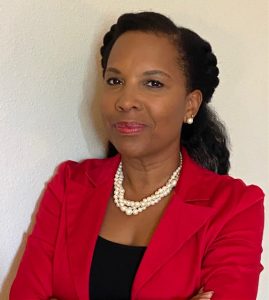Editor’s Note: Empath Health is proud to join healthcare organizations across the country to celebrate National Care at Home Month in November. The focus on providing care wherever patients call home provides the perfect opportunity to highlight the Full Life Care provided by Empath Health and its affiliate organizations. This week, November 4-8, has been designated Palliative and Advanced Care Week. We kick off this week with a story about Empath Health’s advance care planning initiative.
Advance care planning ensures healthcare preferences are honored when an individual is unable to make them for themselves.
Empath Health Community Partnership Specialist Keosha Simmons shares the importance of advance care planning across Pinellas County. She is a frequent guest at monthly Lunch and Learn presentations at Clearwater’s Willa Carson Health and Wellness Center, one of Empath’s treasured community partners.
The Willa Carson Center is a free medical clinic serving uninsured and underinsured county residents with quality physical and mental healthcare. Simmons’ goal is to raise awareness, provide education about advance care planning and encourage the public to put a plan in place.

Kimberley Nunn-Crawford
“It’s never too early,” Willa Carson Executive Director Kimberley Nunn-Crawford said. “Being a licensed counselor, I’ve seen the family conflict and stress that occurs when there’s not a plan that has been shared and discussed with loved ones. I’ve seen the difference when a plan is discussed. Even if the family member or loved one doesn’t necessarily agree with it, generally out of respect they’ll still follow it. There’s less anxiety. When everyone is aware, there is less guessing about what’s going to happen next. Everybody is on the same team.”
Debra Henderson-Campbell, the office manager at Willa Carson, shared a story about what can happen when a loved one didn’t involve family members in healthcare planning. Her father, who lived near Ocala, informed the family he had leukemia and was heading to his native Ohio for a procedure. Unfortunately, he passed away during the procedure, leaving his children to wonder if there may have been a better course of treatment for him.
“He didn’t tell us he had another option that may have allowed him to live maybe six months,” Henderson-Campbell said. “I think it would have been easier to have known what he was up against and to be able to talk to him and get some insight. He was the type of person who didn’t want to worry anybody. Everything was always OK.”
Central to advance care planning are two key components: healthcare surrogate and living will. A healthcare surrogate, also known as a healthcare proxy or durable power of attorney for healthcare, is a trusted individual appointed to make medical decisions on behalf of the patient when they are unable to do so themselves. This person should be someone who understands the patient’s values and preferences regarding medical care. Selecting a healthcare surrogate is crucial as it ensures their wishes are respected even if they become incapacitated.
A living will is a legal document that outlines a person’s preferences for medical treatment and end-of-life care. It allows individuals to express their desires regarding life-sustaining treatments, such as CPR, mechanical ventilation and feeding tubes, in advance.
“What we are noticing is that a lot of individuals feel this is something you do when you get sick or older,” Nunn-Crawford said. “The last time Keosha was here, she talked about the importance of knowing the wishes of your adult kids if something were to happen. Because they are adults, I, even as the parent, would be limited in what I could express as far as wishes. It’s important information.”
Nunn-Crawford appreciates her center’s partnership with Empath Health and its affiliate organizations. Simmons also visits the center to discuss the network of services provided by Empath Health, such as Suncoast Hospice.
“We have a go-to,” Nunn-Crawford said. “That’s so important in a free clinic. You need resources. You need to know where to refer people, to say this organization can assist you with this. We feel confident when we make that referral to Empath Health.”
To schedule an individual or group advance care planning session, email Community@EmpathHealth.org or call (727) 523-3427.
The post Palliative and Advanced Care Week: It’s Never Too Soon to Make Your Plan appeared first on Empath Health.
